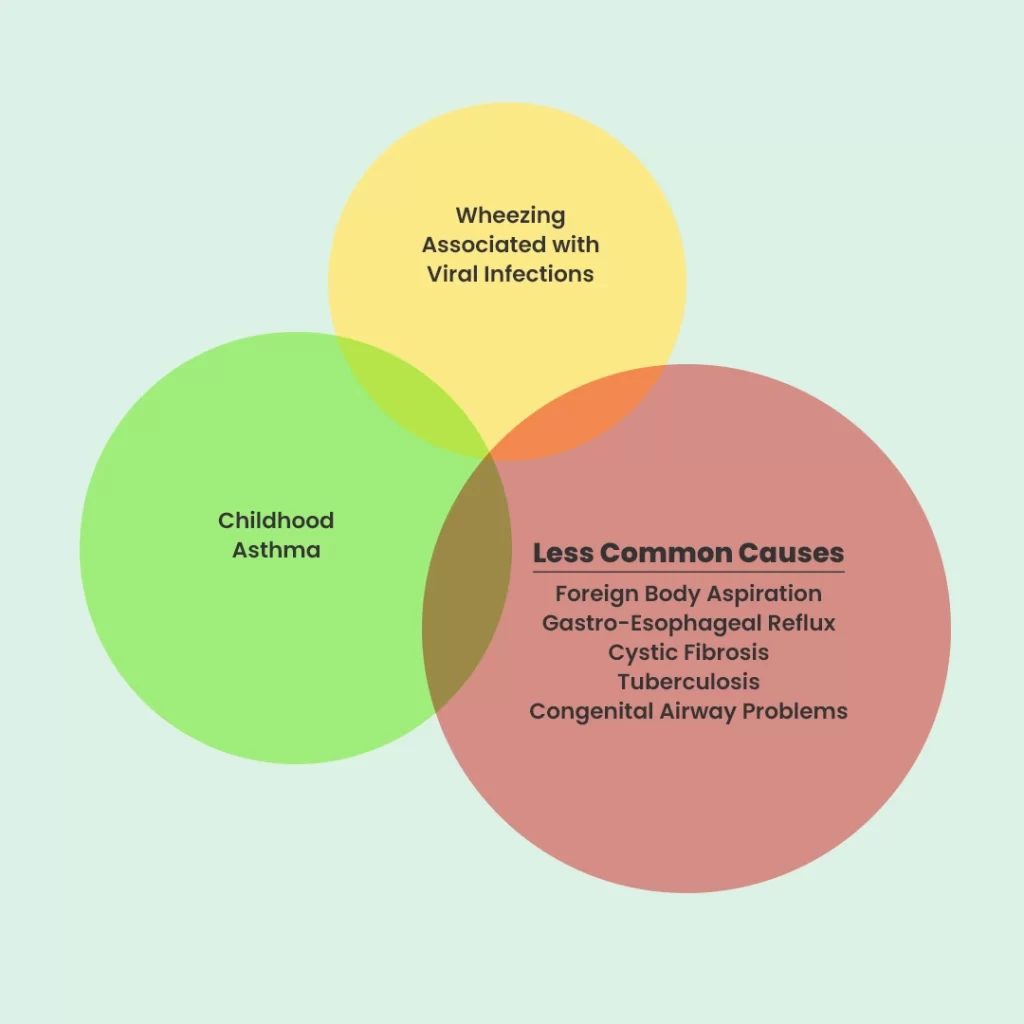Recurrent &
Persistent Wheezing
What is Wheezing?
- Wheezing is a high-pitched, whistling sound that occurs when air flows through airways that are narrowed due to swelling, bronchospasm, or the presence of secretions.
Can I Hear Wheezing Myself?
- Sometimes, wheezing is audible, and you may be able to hear it. However, often these sounds are subtle, and a doctor can detect them more accurately with a stethoscope.

What Causes Recurrent Wheezing in Children?
The most common causes of recurrent wheezing are asthma in older children and viral respiratory infections in younger children.
Other less common causes include:
- Infections: Conditions like bacterial bronchitis, bronchiectasis (widened and inflamed airways), and tuberculosis.
- Congenital Conditions (present from birth): These can include tracheobronchomalacia (weak airway walls), cystic fibrosis, primary ciliary dyskinesia, immune deficiencies, or compression of the windpipe by blood vessels or lymph nodes. Additionally, an H-type tracheoesophageal fistula (an abnormal connection between the windpipe and food pipe) can also be a cause.
- Mechanical Issues: Examples include gastroesophageal reflux and foreign body obstruction in the airway.
What Are the Warning Signs of a Potentially Serious Cause of Wheezing?
Signs that may indicate a more serious underlying cause include:
- Poor growth or inability to gain weight
- Persistent, productive cough
- Wheezing lasting over 4 weeks
- Stridor (a loud, harsh breathing sound)
- Onset of wheezing before 6 months of age
- Severe wheezing episodes requiring hospitalization
How is a Child with Recurrent or Persistent Wheezing Evaluated?
- Evaluation begins with a detailed history and physical examination of the child, along with a review of any previous records and chest X-rays if available. Initial tests often include a chest X-ray and, in older children, spirometry (a lung function test).
- For some children, further investigations may be necessary to identify the exact cause, such as a flexible bronchoscopy, chest CT scan, or tests for gastroesophageal reflux.
